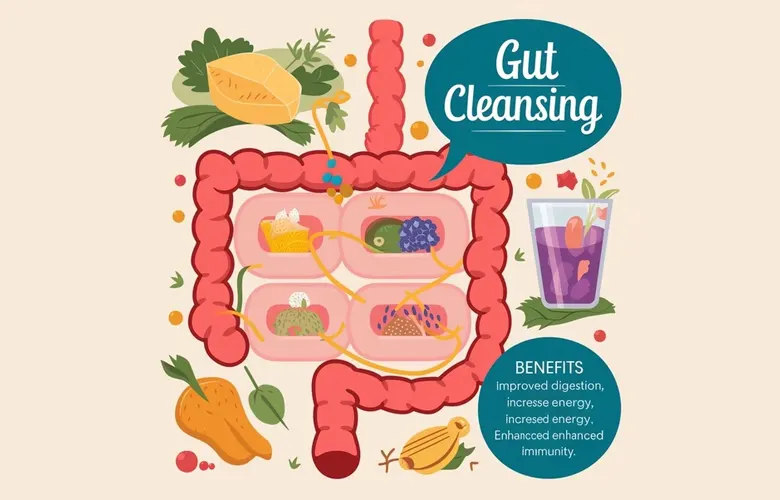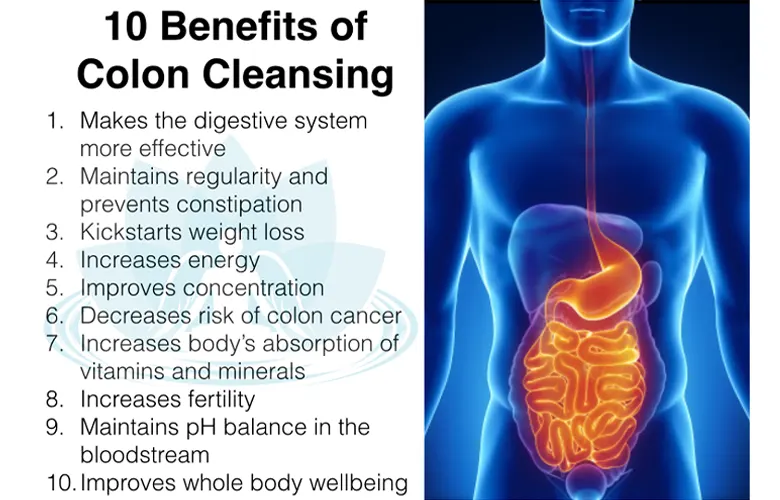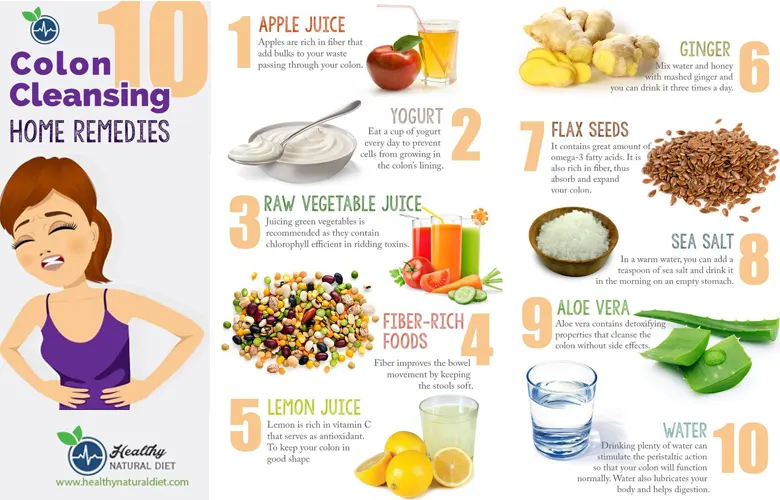
Introduction To Spine
The colon, also known as the large intestine, is an important digestive organ. It communicates with the small intestine and is further divided into four parts: the ascending colon, the distal colon, the descending colon, and the sigmoid colon. The primary function of the large intestine is to remove water, salts, and nutrients from digestion into secretions. Maintaining muscle health is important because of its many roles in digestion and waste elimination. Colorectal cleansing has received attention for its potential benefits in improving digestive health.
Benefits Of Colon Cleansing

Colon cleansing involves removing suspended waste and non-specific toxins from the walls of the colon. This practice can bring many benefits, including improved cognition, increased immune function, and possible weight loss. There is also evidence of a decreased risk of colorectal cancer. By eliminating excess waste from the bowels, one can feel healthier and more energetic overall.
Statistics And Characteristics
Colorectal cancer is a serious health problem, that affects a large proportion of the population. According to the latest statistics, the diagnosis of these types of cancers is increasing. Symptoms associated with a buildup of waste in the colon include inflammation, low energy, weight gain, and conditions such as irritable bowel syndrome (IBS) Understanding these symptoms can help you make you understand the importance of maintaining a healthy spine.
Practical Colon Cleansing Tips

Lemon Juice
One of the most effective ways to cleanse the colon is to use lemon juice. Lemons are rich in vitamin C, which helps detoxify the body. One simple remedy is to mix the juice of half a lemon with a glass of warm water and drink it daily. This process can help improve bowel movements, increase energy levels, and promote overall digestive health.
Clean Drinking Water
Adequate hydration is essential to maintaining gut health. Drinking pure water helps detoxify the body and aids digestion. A good indicator of adequate hydration is the color of your urine; It should be light yellow. Aim to drink at least eight glasses of water a day to keep your bowels running smoothly and optimally.
Physical Workout
Regular exercise plays an important role in digestion and preventing constipation. Exercise, such as walking, running, and yoga, stimulates the muscles of the intestines, which aids the passage of urine. Adding at least 30 minutes of exercise to your daily routine can have a significant impact on spinal health.
Fermented Foods
Fermented foods contain beneficial bacteria that support gut health. Foods like yogurt, kefir, sauerkraut, and kimchi are good sources of probiotics. These bacteria help maintain a healthy balance of the gut microbiome, aid digestion, and support immune function. Adding fermented foods to your diet can boost your overall gut health.
Green Vegetables
Green vegetables offer many health benefits due to their high fiber and nutritional content. Vegetables like spinach, kale, and broccoli are especially beneficial for the gut. They provide essential vitamins and minerals and help to increase mucus buildup, facilitating elimination and preventing acne, and constipation.
Supplements
Over-the-counter supplements can also help cleanse the colon. Ingredients like psyllium husk and magnesium citrate act as natural laxatives, moisturize the bowels, and eliminate waste. It is important to follow the recommended dosages and consult with a healthcare provider before starting any supplements. For further details on top-rated products, see our recommendations for the best colon cleansers.
Enema Or Rectal Irrigation
For more intense cleansing, some individuals may opt for an enema or anal irrigation. In these procedures, water is injected into the spinal cord to break up urine and remove waste products. While these procedures can be effective, they should only be performed under medical supervision to avoid potential complications.

Conclusion
In summary, the gastrointestinal tract plays an important role in our digestion by eliminating waste and absorbing essential nutrients. Cleansing the colon can help keep it functioning by removing toxins and preventing symptoms such as weight gain and constipation.
Prioritizing natural strategies, such as staying hydrated, eating a balanced diet with whole foods and green vegetables, and exercising regularly can be safe and effective strategies for adopting ways to improve overall digestive health Adopting these practices will help you have a healthier gut and improve your quality of life.
In addition, focusing on signs and symptoms that may be related to digestive issues can help identify and treat them earlier.
This includes checking the bowels, checking for abdominal pain or discomfort, carefully monitoring for changes in appetite or energy levels and if you notice persistent or severe symptoms, it is important to be considered by a physician for proper diagnosis and treatment of the abdomen.
Also, note that a holistic approach to dietary health goes beyond just physical wellness. Stress and emotional well-being also play an important role in panic functioning.
Engaging in stress-reducing activities such as meditation or yoga can have positive effects on mental and digestive health.



